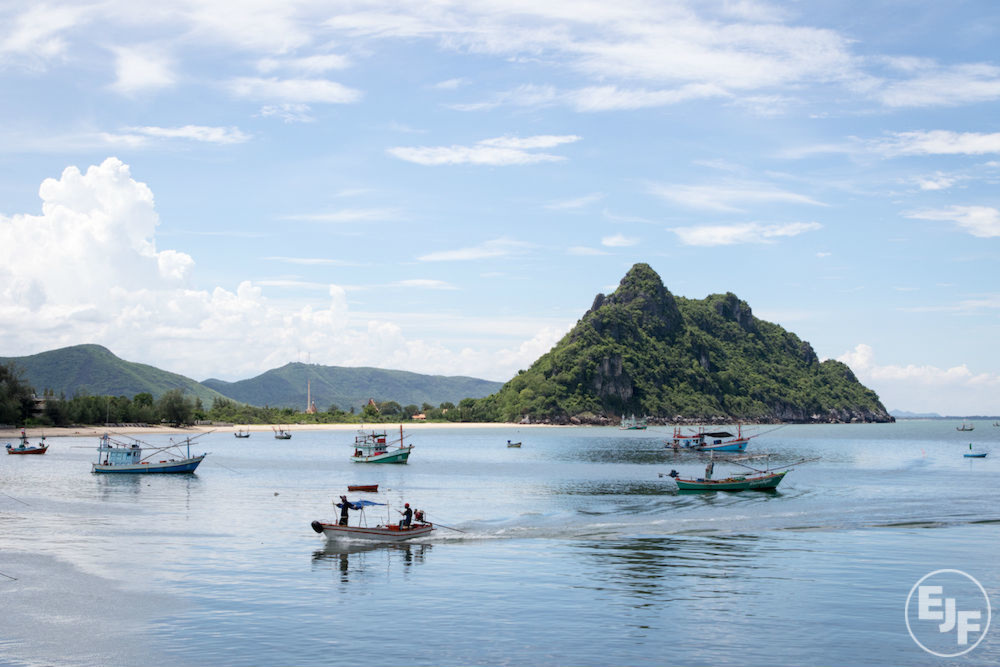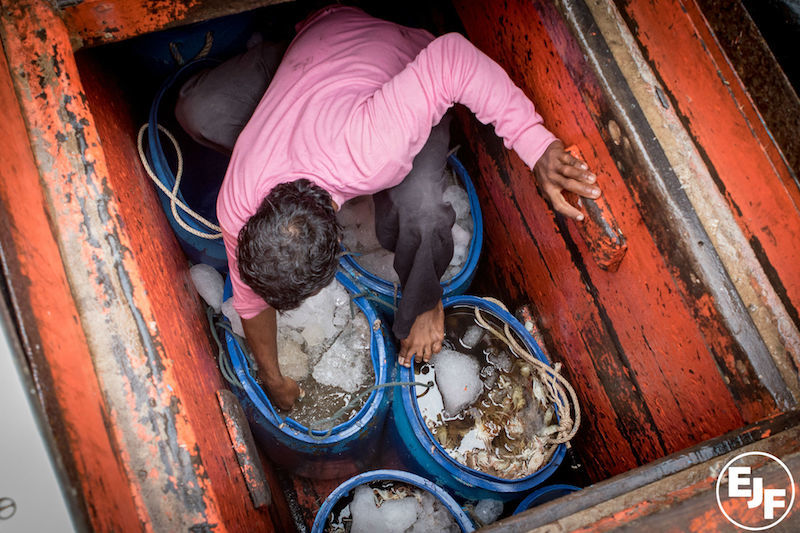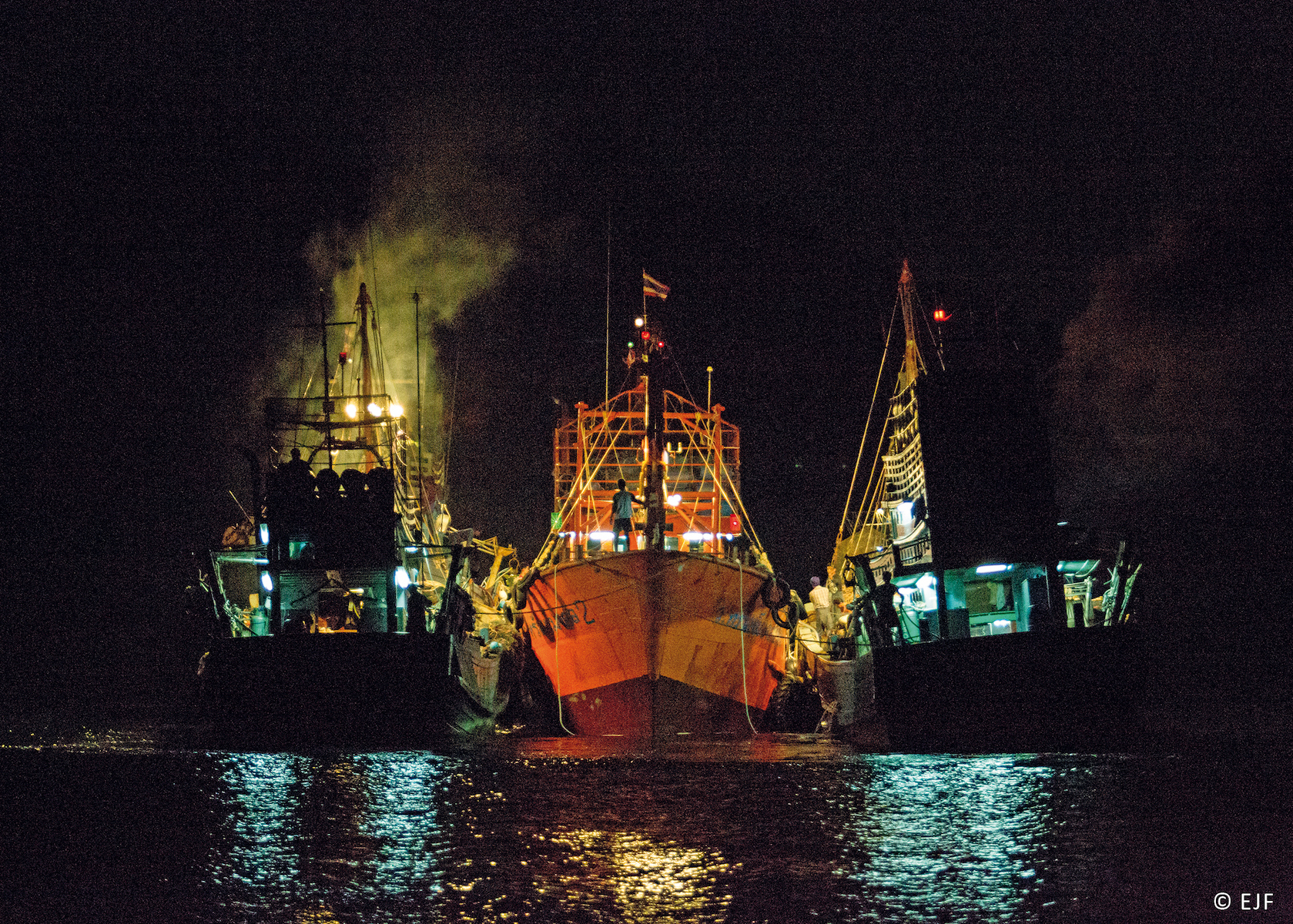
Public access to data for ethical, legal, sustainable fisheries
Our limited natural resources are shared, so it is only logical that the public should be able to find out where, when and by how much companies exploit them. Transparency in public affairs is one of the best remedies against illegal activities, mismanagement, corporate greed and the long-term damage caused by short-term profit. In a bold move to improve transparency in its fishing sector Thailand has now become one of the first countries in Southeast Asia to publish a full list of all its fishing vessels, alongside a watchlist of those prohibited from fishing.
Much of the fishing industry is plagued by a lack of transparency, enabling illegal, unreported and unregulated fishing and human rights abuse. Illegal operators aim to create as much confusion as possible around their identities, escaping detection by changing vessel names, concealing ownership, flying different flags, or removing ships from registers entirely.
This is facilitated by countries that provide ‘flags of convenience’ to vessels, with low levels of requirements for vessels to join their registries. Similarly, to reduce costs and maximise profits, illegal operators often resort to operating without a valid license from a coastal state, which causes significant loss in revenue for these countries. The challenges in uncovering a vessel’s illegal activities, both current and in the past, mean that illegal operators are at low risk of capture and sanction by authorities.
But solutions do not always require new, sophisticated technology, or unrealistic expense. Thailand has shown that simple, cheap effective measures can be put in place today.
Massive over-fishing and illegal activities resulting from decades of poor fisheries management has led to a collapse in Thai fisheries, with catches falling by 86% over two decades. With fish stocks diminishing and global demand at an all-time high, some unscrupulous companies have turned to illegal fishing and exploitation of workers to minimise costs and maintain profits.
Only since 2015 have efforts been made to address these three connected issues, with the Royal Thai Government instigating efforts to quantify its large fleet and get a firm grip over it. The Department of Fisheries and Marine Department organised nationwide surveys and tightened vessel registration requirements so that all vessels were known to the authorities and could no longer change their identities.
The move to publish a complete list of 10,742 vessels eligible to fish in Thai waters is crucial for holding the industry to account. It contains vital information such as each vessel’s registration number, the owner’s name, and the port of registration.
The list also allows authorities around the world to cross-check the validity of fishing licences and detect illegal fishing activities. Without specific information-sharing platforms or quick and efficient ways to verify fishing permits and vessels’ flags, such as online, it can be very difficult to ascertain the legality of a vessel’s activities, and therefore of products on board. Language barriers, lack of time and resources preclude control authorities from making requests to each and every flag and coastal state as a vessel is being inspected – meaning that many illegal vessels are able to operate under the radar, stateless, under a false flag or without a valid fishing licence without worry of ever getting caught.
Releasing such information publicly not only supports good governance of natural resources. In the context of IUU fishing, it is key in establishing the legality of vessels and the fish they land and leaving unscrupulous operators no cracks to hide in.
Increased transparency is the cornerstone in the fight against illegal fishing and for achieving sustainable, legal and ethical fisheries.
EJF is calling on all countries around the world to follow Thailand’s lead and publish information about vessels licensed to operate in their waters.

